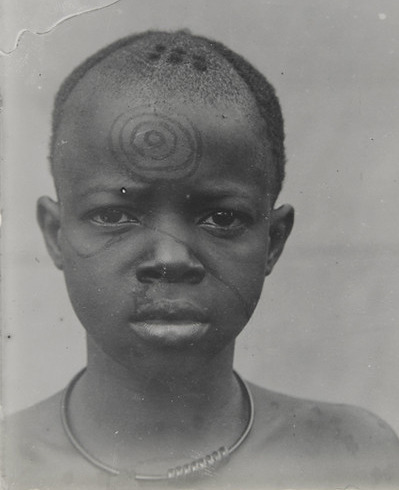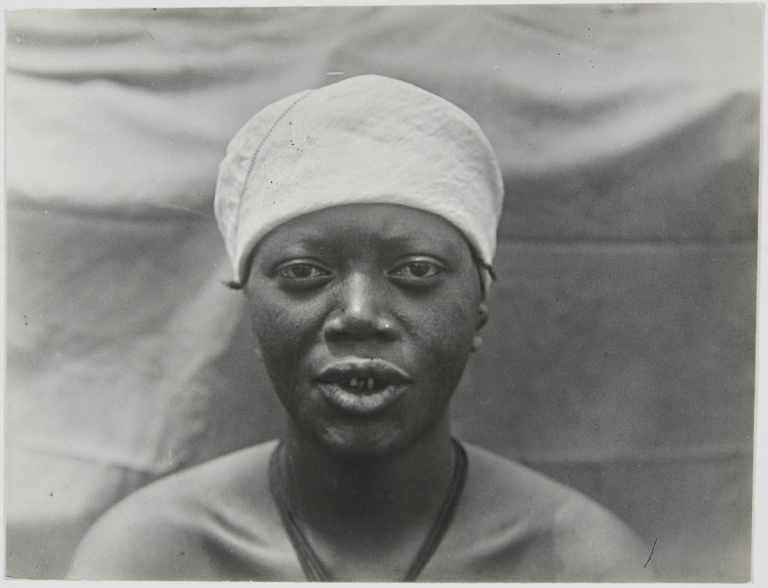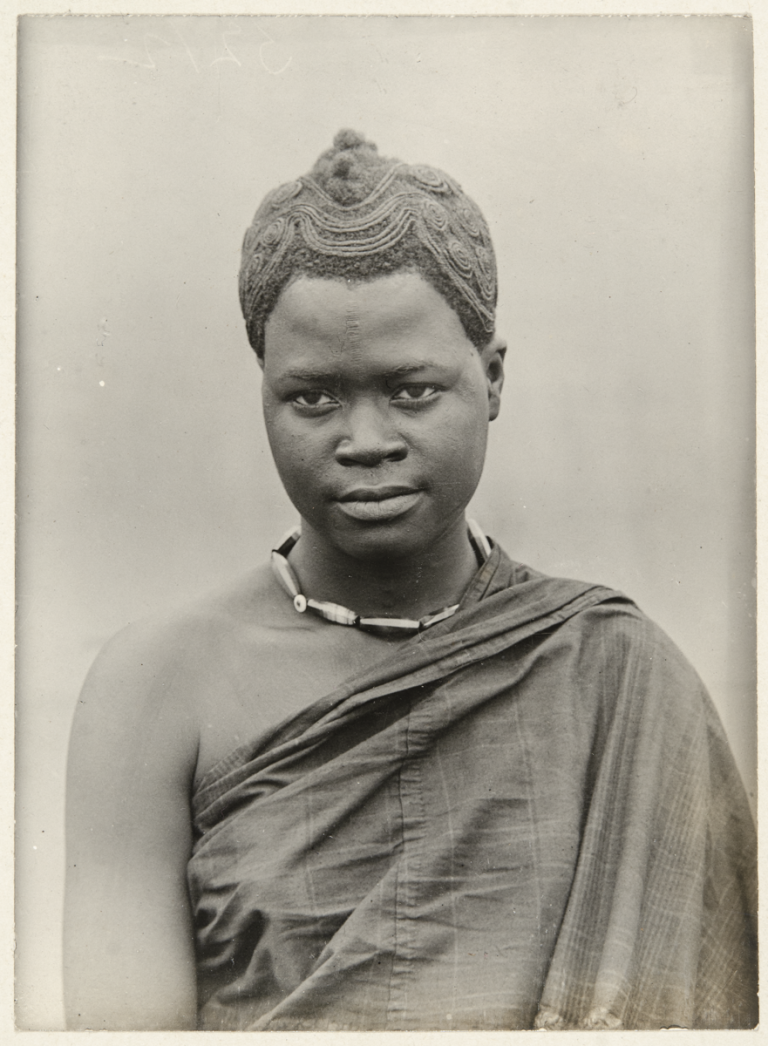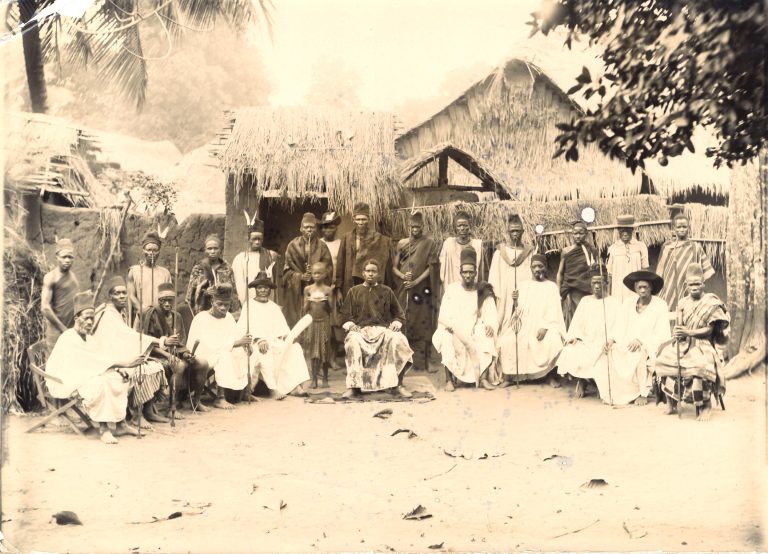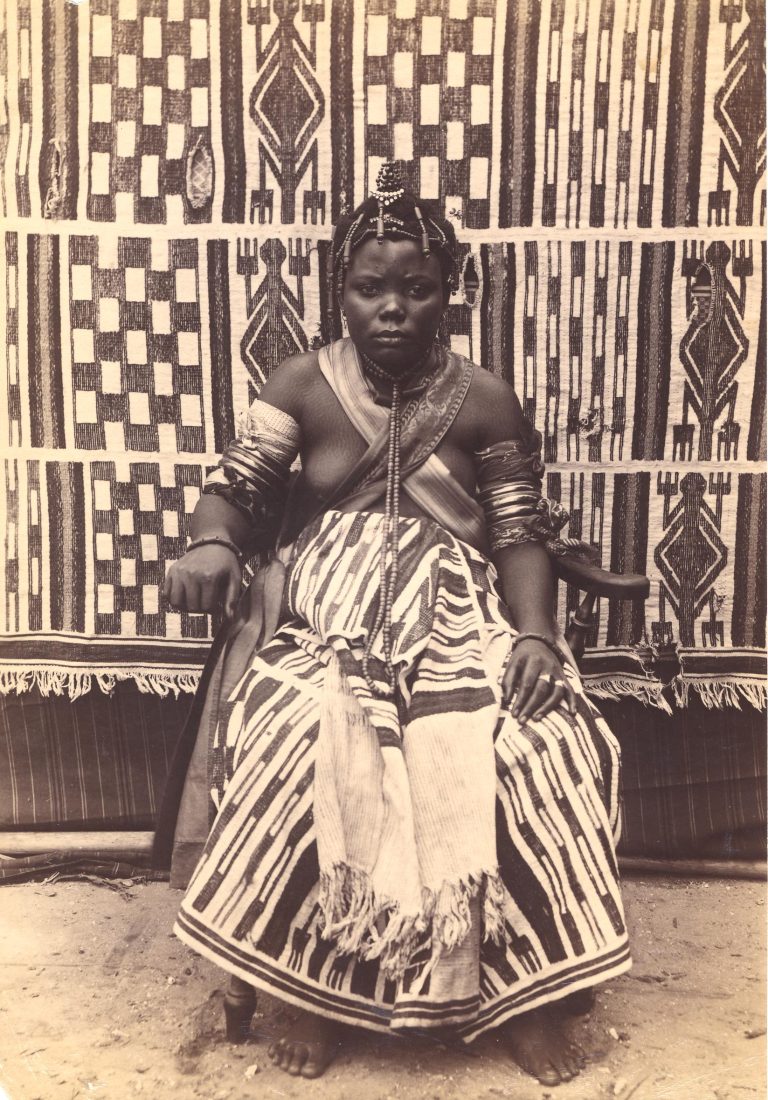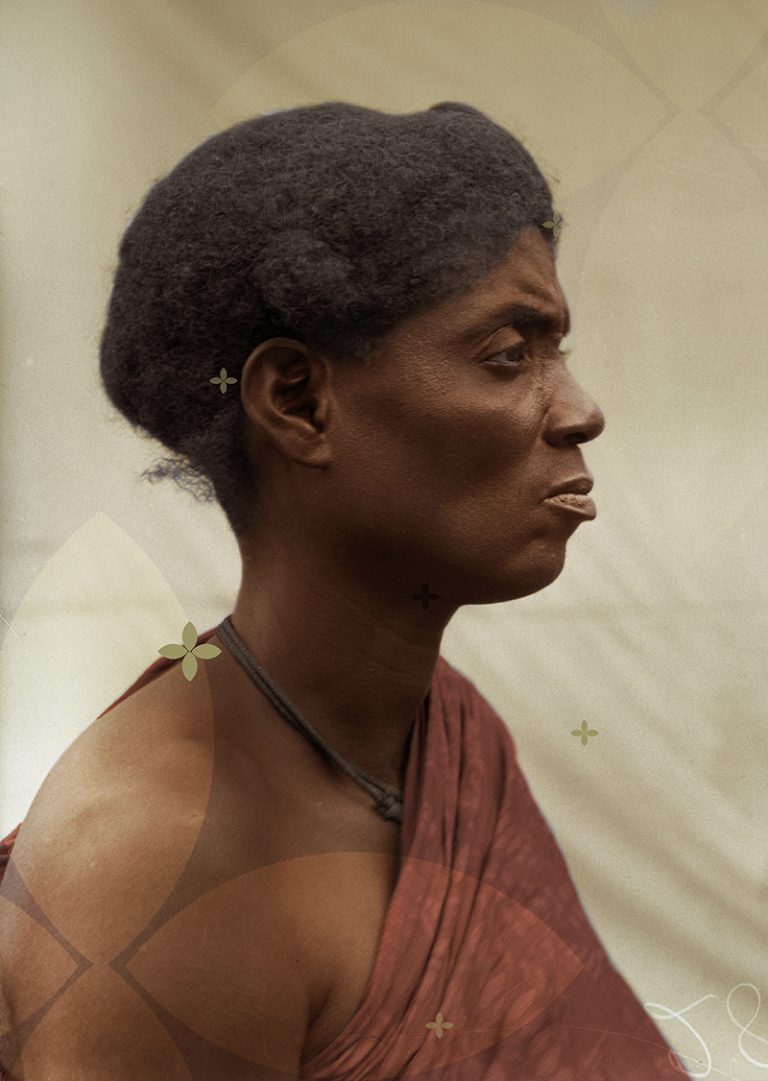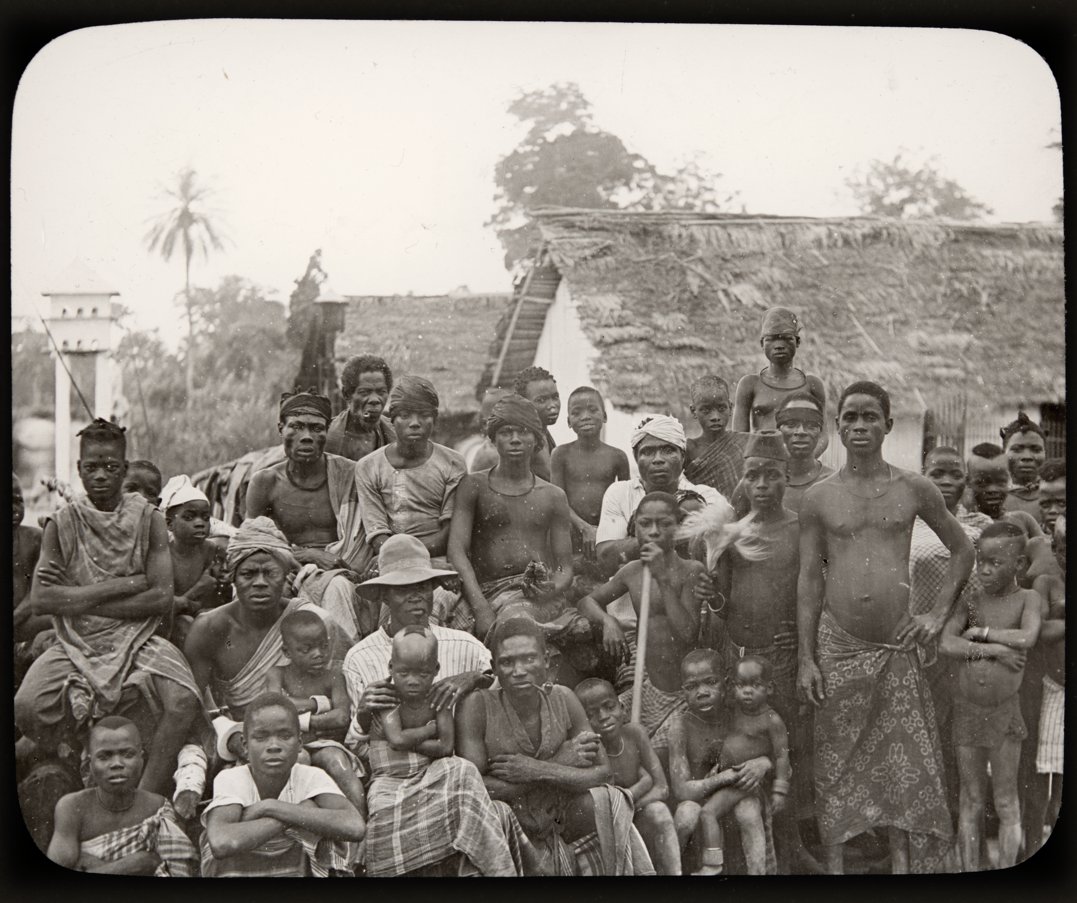
This historical group portrait, captured by Dr. William Henry Crosse between 1886 and 1895, shows individuals from the Niger River Igbo area in Nigeria. Taken during the period of the Royal Niger Company’s operations, this image is part of the Crosse Collection at the Museum of Archaeology and Anthropology, Cambridge. The photograph provides a rare glimpse into the lives of local communities and their interactions with the colonial company.
The Royal Niger Company
The Royal Niger Company (RNC) was a British mercantile company chartered to administer the vast territories of the Niger River basin. Founded in 1879 as the United African Company, it was renamed the National African Company in 1881 and finally the Royal Niger Company in 1886. The founder, Sir George Taubman Goldie, was instrumental in its establishment and operations, with the company headquartered in Lokoja, Nigeria.
Formation and Operations
Initially formed to facilitate trade in palm oil and other commodities, the RNC was granted a royal charter in 1886, which provided it with administrative and military authority over large areas in the Niger basin. This charter allowed the company to establish treaties with local leaders, levy taxes, and maintain a private army to protect its interests and enforce its policies. The company’s influence was significant, shaping the economic and political landscape of the region during its period of operation.
Impact on Igbo Communities
The activities of the Royal Niger Company had profound impacts on the Igbo communities along the Niger River. The company’s aggressive expansion disrupted traditional trade routes and local economies, often leading to conflicts. The company’s efforts to control trade and resources led to significant changes in local governance and societal structures.
Economic Disruption
The RNC’s monopolistic practices undermined local economies. The company controlled the trade in palm oil, which was a major economic activity for the Igbo people. By imposing their own trading terms and prices, the RNC marginalized local traders, leading to economic hardship for many communities. The disruption of established trade routes further exacerbated economic instability.
Social and Political Upheaval
The presence of the RNC introduced new forms of governance and legal systems that often clashed with traditional Igbo practices. The imposition of taxes and the establishment of new administrative structures eroded the authority of local leaders. This often led to resistance and conflict as the Igbo people sought to preserve their autonomy and way of life.
The Ekumeku Movement
One of the most notable resistances to the RNC’s control was the Ekumeku movement. Spanning from 1898 to 1911, this movement was characterized by guerrilla warfare tactics employed by Igbo warriors against British forces and their allies. The Ekumeku warriors engaged in strategic ambushes and hit-and-run attacks, leveraging their knowledge of the local terrain. Despite their efforts, the superior firepower and resources of the British eventually led to the movement’s decline. However, the Ekumeku movement remains a significant symbol of Igbo resistance and resilience.
Cultural Impact
The RNC’s activities also had lasting cultural impacts. The introduction of Western education and Christianity by missionaries associated with the company led to cultural changes. Traditional beliefs and practices were often marginalized, and the influence of Western norms began to reshape Igbo society. This cultural shift had profound implications for identity and social cohesion among the Igbo people.
William Henry Crosse
Dr. William Henry Crosse, the Principal Medical Officer of the RNC, documented much of the company’s interactions with local communities through his photography. The image at the beginning of this post, part of the Crosse Collection at the Museum of Archaeology and Anthropology (MAA) Cambridge, serves as a historical record of these interactions. Crosse’s photographs, including the group portrait featured here, offer valuable insights into the cultural and social dynamics of the period.
The Decline and Legacy
By the late 1890s, the RNC found it increasingly difficult to maintain its dominance. On January 1, 1900, the company transferred its territories to the British government for £865,000, leading to the formation of the Northern and Southern Protectorates of Nigeria. This marked the end of the company’s administrative role, though its influence persisted through its successor, The Niger Company Ltd, which later became part of the United Africa Company in 1929.
The legacy of the RNC is complex, marked by both economic development and social disruption. Its operations laid the groundwork for British colonial administration in Nigeria, impacting the region’s governance and economic structures. However, it also contributed to significant cultural and social upheaval, with long-lasting effects on local communities.
We invite our readers to reflect on this chapter of our history. How do you think the activities of the Royal Niger Company have shaped contemporary Igbo society and Nigeria as a whole? Share your thoughts and join the discussion in the comments below.
References
- “Trade Winds on the Niger: Saga of the Royal Niger Company, 1830-1971” by Geoffrey L. Baker. See our review below
- Ekumeku War: How Igbo Vigilantes Resisted Britain For 31 Years. Ndigbo Worldwide. Available at: ndiigboworldwide.com
- Royal Niger Company: History and Operations. Britannica. Available at: britannica.com
Discover more from Igbo Archives
Subscribe to get the latest posts sent to your email.


